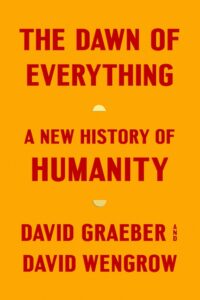June 29, 2023 | by Daniel Giamario |
“The Divine incarnates only in the Individual – which overshadows the group.
The supreme responsibility always lies with the individual.
At the exact moment, in the most definite manner,
Destiny acts and speaks through the Individual.”
Dane Rudhyar
Introduction
This article is intended to be a broad overview of some key foundational concepts to aid in the understanding of the current astrological material that I have been building upon, including the US Pluto and Chiron returns, the shadow of Aquarius, the six converging timelines at the end of Kali Yuga, the Fourth Turning, and many other topics. It’s relatively long! So I suggest printing it out to more easily digest it.
Backdrop: The “isms”
I had the good fortune of being at the University of Kansas from 1966-1970, a most momentous and important time for myself and my generation. I majored in Philosophy and East Asian Studies. The events of 1968, under the auspices of a Jupiter-Uranus-Pluto conjunction, very much shaped those revolutionary times. Hope was brimming for the arrival of the Age of Aquarius, buoyed by vibes of Leonine autonomy and sovereignty as well as visions of collective harmony and world peace. There were also concerns back then about a future technocratic and AI nightmare which, unfortunately, has ensued.
In the philosophy departments, there was a wave of reaction against materialist views such as logical positivism, empiricism, and pretty much all analytical philosophies. In psychology, behaviorism was highly criticized. As philosophical idealists, we all stood on a foundation wherein Consciousness precedes Matter, and not the other way around. One thing that I so clearly remember from that period was the thorough debunking of Utilitarianism. Yet somehow it has reared its head again in the 2020s, perhaps as a way of legitimizing an even deeper descent into materialism under the spell of the Globalists’ religion of “Scientism.”
Scientism is not the same as science. Scientism claims that science is the only objective means by which we can know anything. While science does tell us a lot about nature and assists us in developing new technologies, solving technical problems, and making informed decisions – believing that it’s the only source of knowledge is a limitation. Grasping this distinction helps us to see why much of today’s so-called science is hardly objective. Upon scrutiny it is evident that much of the science reported in publications and the mainstream is riddled with subjective biases, as if prostituted to the highest bidder.
Utilitarianism
In more recent times, the origin of this ism is credited to Jeremy Bentham and John Stuart Mill. They, however, stood on the earlier foundation of ancient Epicureanism, with an emphasis on Hedonism. Their view was that the goal of life was to maximize happiness and pleasure and to minimize unhappiness and pain. This sounds reasonable. They were not particularly statists; they just wanted governments to operate with this as the priority for the people.
Today we see a very different definition of Utilitarianism, such as this one found online at Google Dictionary:
- The doctrine that actions are right if they are useful or for the benefit of a majority.
- The doctrine that an action is right insofar as it promotes happiness, and that the greatest happiness of the greatest number should be the guiding principle.
So often in the media, and especially in political propaganda, we hear of the value of the “greater good” and that to be a sovereign and autonomous individual is “selfish” or even dangerous. Little thought is given to who has the power to determine what this so-called greater good is. Instead, unelected individuals, governments, and corporations assume – and act upon the assumption – that they hold this power.
The Collective and Collectivism
Here we find another common definition that is easily found online:
Involving all members of a group as distinct from individual members.
Collectivism – so closely related to the word collection – has to do with political theories that put the group before the individual. In a collectivist system, power should be in the hands of the people as a whole, not in the hands of a few powerful folks. Collectivism is the opposite of individualism. Ideally, in a collectivist society, decisions benefit all the people. This is a difficult idea to put into practice, as seen in the attempted collectivist society of Soviet communism.
The Egregore
Some esoteric authors and researchers have used the word egregore to describe one of the great dangers of the collective and the majority. Here is a definition:
“Egregore (also spelled egregor; from French égrégore, from Ancient Greek ἐγρήγορος, egrēgoros ‘wakeful’) is an esoteric concept representing a non-physical entity that arises from the collective thoughts of a distinct group of people.”
This phenomenon is a kind of group thought-form that can be created intentionally or unintentionally. An easy example is what happened in Germany with the Nazis. It can also be recognized in most cult behaviors. I experienced it myself when I was in the Transcendental Meditation (TM) cult. I also see elements of an egregore at work with some of the cults we are witnessing today: virtue signaling, masking, experimental vaccines, Scientism, and aspects of “Wokeism.” An egregore is in operation when an individual feels energetically threatened by the group mind and experiences the tyranny of the majority. A controlling energy of some type palpably overtakes the group.
Other examples of collectives and the egregore phenomena include the “Borg” of Star Trek fame, the hive mind, and even the AI cloud.
Democracy and Totalitarianism
In light of our discussion so far, it’s pretty easy to see what is happening in the world. All forms of government where power is held by the state – whether they be Communism, most forms of Socialism, Theocracies, or Fascism (defined as the merger of corporation and state) – are committed to the collective, and therefore threatened by a free individual. These forms of government have always degraded into Totalitarianism. Totalitarianism can be defined as a system of government that is centralized and dictatorial and requires complete subservience to the state.
On the other hand, a society or government based on the individual is founded on the dignity of a free individual, one who derives sovereignty directly from the Divine (however perceived), or as an act of spiritual will on the pathway to discovering personal sovereignty.
Democratic Socialism is an interesting consideration, and may perhaps be an oxymoron. Democracy on its own has its share of problems, easily devolving into the tyranny of the majority and the rule of the mob (the egregore). The US founders warned against democracy and tried instead to create a constitutional republic, one of few such experiments. But it wasn’t long before corporations, in league with a Federal government, slowly but surely eroded the foundation of inalienable rights. Socialism always tends to devolve into the primacy of the state.
Virtually every great philosopher despised democracy. Like Plato, they believed the world should be run by an elite class (philosopher kings), which is similar to the shadow of the American experiment (white landowners). It can easily be seen that unelected bodies such as the World Economic Forum (WEF), the World Health Organization (WHO), and so many other international bodies, have the same pretension, showing little or no concern for personal sovereignty and inalienable rights.
There actually have been cultures and societies that functioned on the basis of freedom and inalienable rights. These were located mostly in the Americas, before the European conquests. David Graeber, in his important book The Dawn of Everything, details this. Certain pirate communities also evidenced these values. We can add to this the Australian aboriginals.
 Graeber lists three essentials for freedom that he uncovered from the last 10,000 years:
Graeber lists three essentials for freedom that he uncovered from the last 10,000 years:
- The freedom to say “No.”
- The freedom to form any kind of social relationships one desires.
- The freedom to move around freely.
“Inalienable” is such an interesting word and very much connected to our topic. Here is a Web definition:
Inalienable describes things, especially rights, that cannot be taken away, denied, or transferred to another person.
Inalienable means the same thing as unalienable, which is no longer in common use. However, unalienable is closely associated with the phrase unalienable rights due to its appearance in the US Declaration of Independence: “We hold these truths to be self-evident, that all men are created equal, that they are endowed by their Creator with certain unalienable Rights, that among these are Life, Liberty and the pursuit of Happiness.”
Thomas Jefferson actually used the spelling inalienable in early drafts of the Declaration of Independence, but the spelling was changed for the final draft. Unalienable was the preferred spelling until around the 1830s. Today, “in” has completely replaced the “un” in regular use.
Alienable in itself is a word, but rarely used. It means: able to be sold or transferred.
Example: We work to make the founders’ words true – that everyone has the inalienable right to freedom.
Similar words and concepts include inviolable, absolute, unassailable, and inherent.
Rudolf Steiner’s View
 Rudolf Steiner was one of many spiritual philosophers who felt that evolution can only happen through the individual, and never through a group. From an astrological perspective, I follow Dane Rudhyar’s view that the arrival of a conscious apprehension of being an individual corresponded globally with the rare union of Uranus, Neptune, and Pluto around 500-600 BCE. It’s not a coincidence that this is the timeframe in which the first birth charts of individuals appear. Steiner refers to this as “the I” which is not to be confused with the ego.
Rudolf Steiner was one of many spiritual philosophers who felt that evolution can only happen through the individual, and never through a group. From an astrological perspective, I follow Dane Rudhyar’s view that the arrival of a conscious apprehension of being an individual corresponded globally with the rare union of Uranus, Neptune, and Pluto around 500-600 BCE. It’s not a coincidence that this is the timeframe in which the first birth charts of individuals appear. Steiner refers to this as “the I” which is not to be confused with the ego.
Steiner’s solution to the individual versus collective issue was his concept of “threefolding.” He conceived of a society with three distinct aspects.
These are:
- The Freedom of the individual to discover their spiritual path.
- The complete independence of education and medicine from state control.
- The participation in a society with a government that operates on democratic principles.
In such a world, authentic democracy could possibly be achieved, with independent educational institutions and the advocation and freedom of spiritual inquiry. The Nazis in Germany of course despised Steiner, as he placed the individual above the state.
Connecting The 12 Mystery Schools of Life to the Topic of This Article (A Work in Progress)
To conclude this article, I thought it would be interesting to bring forward the flavors of each of of the signs from a Shamanic Astrology perspective as they pertain to the topics we have been looking into here. Note that these suggestions are NOT related to ordinary Sun-Sign attributions; they can apply to many areas of a natal chart. Also, there is no judgment of good or bad implied here.
ARIES: Loves being an individual but often supports and follows the orders of collectivist authority.
TAURUS: Committed to the self and personal exploration, but can accommodate and even submit to the collective if it supports their habits, security, and pleasures.
GEMINI: Loves being a free individual who can shape-shift and be whatever they want to be, while generally ignoring the collective or not taking it seriously. Loves being a thorn in the side of the collective or any authority.
CANCER: Very supportive of the specific units of a collective: a family, a tribe, a nation, etc. Cancer generally has no deep concept or awareness of the sovereign individual.
LEO: The epitome of alignment with the sovereign individual. Their connection to the collective is often their desire to rule it, or be loved by it.
VIRGO: This is an unusual one. There is a need for individual space and separateness, but often with the inclination to make a contribution to the collective.
LIBRA: Wholly connected to the social collective. No awareness of the individual self without connection to others or the collective consensus reality.
SCORPIO: Committed to being a sovereign individual. Can be utterly an anarchist with no need at all for the collective, or can connect to the collective for their own motivations.
SAGITTARIUS: Committed to a personal and sovereign quest for freedom and truth unless overshadowed by some fundamentalism. No connection to the collective unless subsumed into the collective group as an arbiter of “truth.”
CAPRICORN: Collectivism to the extreme, especially if the hierarchical leader is in charge. Can also gain identity by simply being part of the apparently dominant group.
AQUARIUS: This one is paradoxical. Often identifies with the ideals and values of radical individuality, but is hugely susceptible to the collectivism of democracy (the “egrogore”).
PISCES: Little or no connection or concern for individual sovereignty. The collective they try to be, or are connected with, is of Spirit.
I will close with a final quote:
“The individual has always had to struggle to keep from being overwhelmed by the tribe. To be your own man is hard business. If you try it, you will be lonely often, and sometimes frightened. But no price is too high to pay for the privilege of owning yourself.” Rudyard Kipling
Editorial assistance: Beau Taylor
